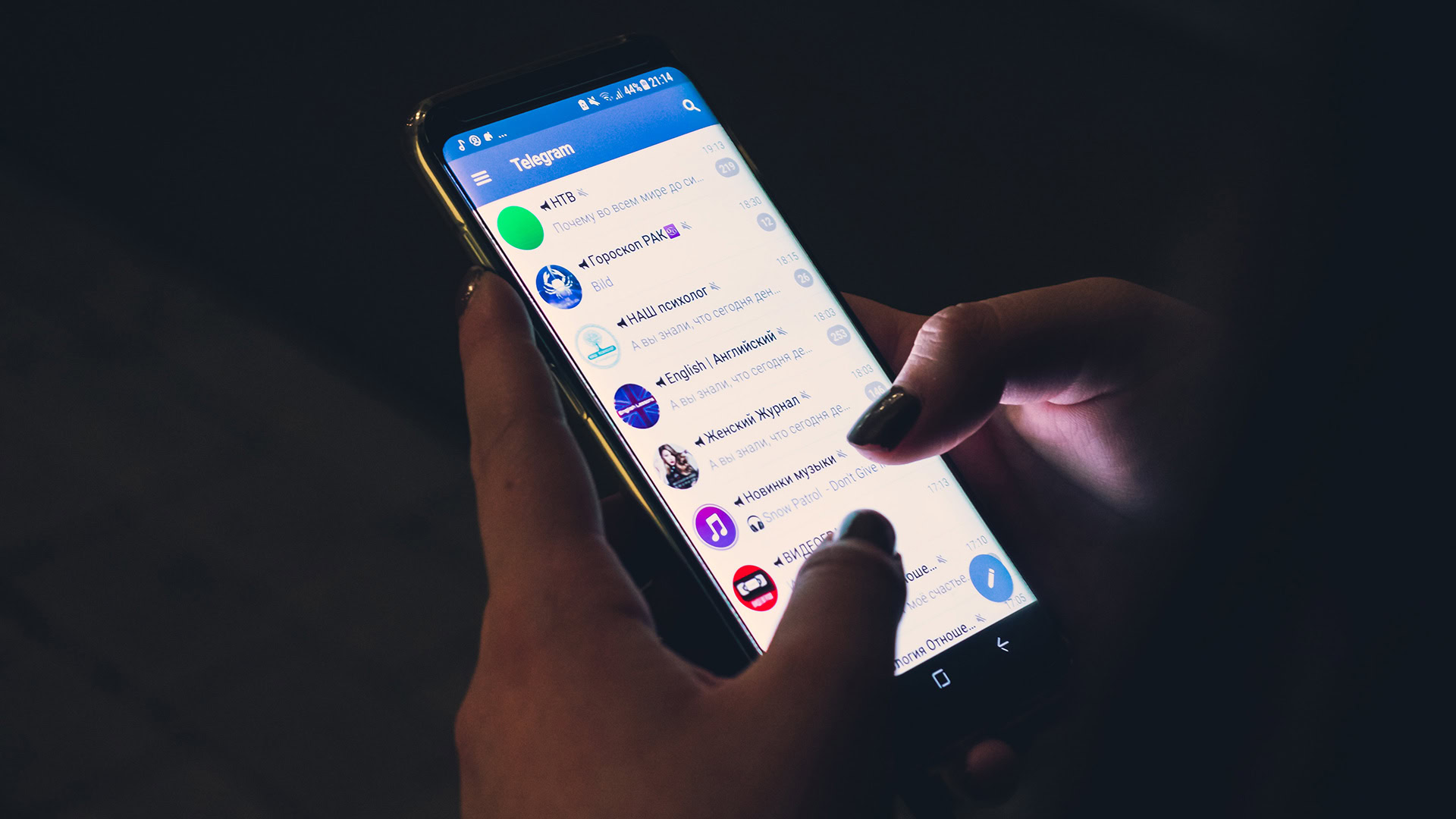Affiliate links on Android Authority may earn us a commission. Learn more.
What is WhatsApp? The ultimate guide to getting started
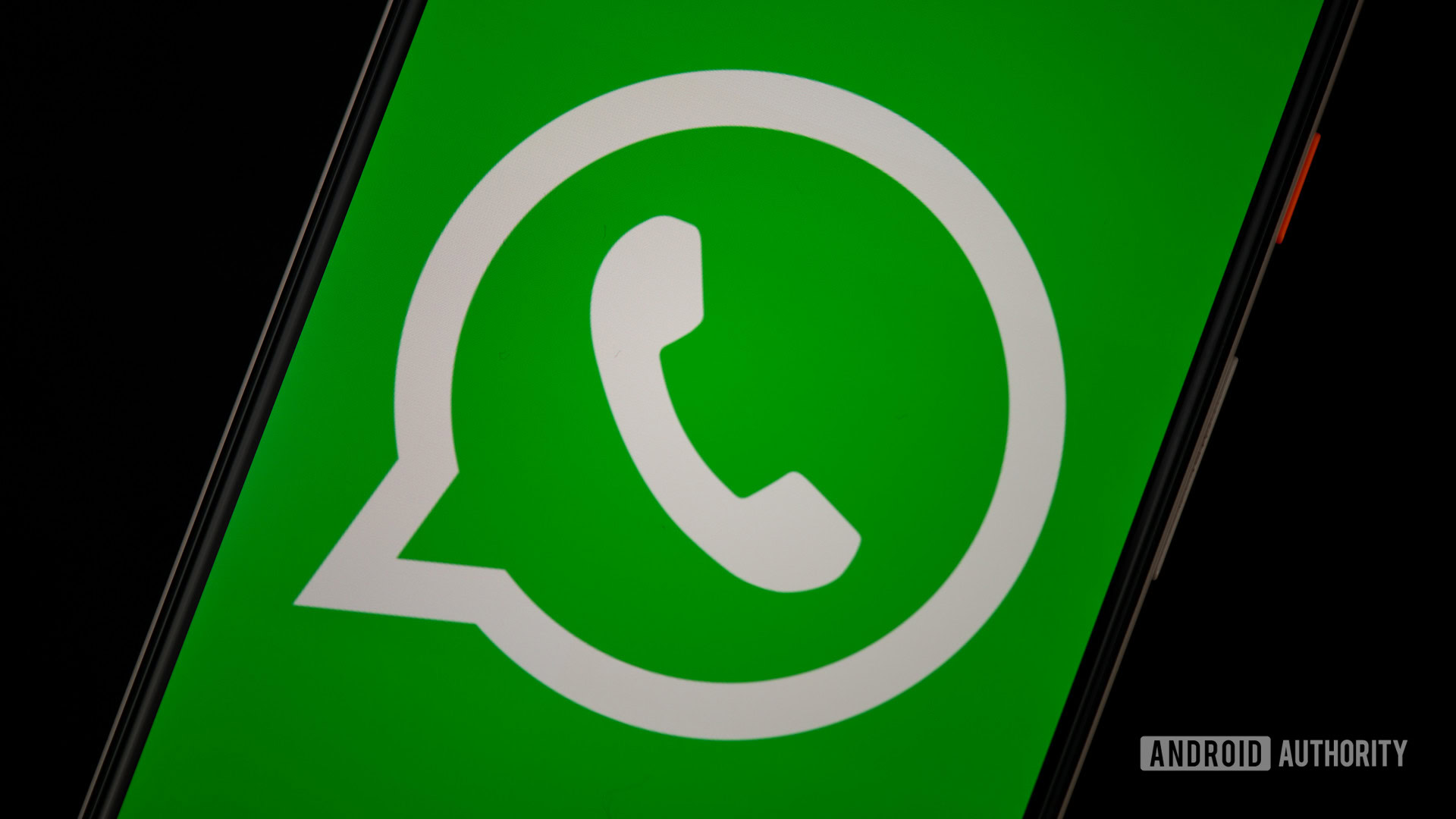
Since the internet first arrived in the mid-’90s, many messaging apps have existed. AOL, Yahoo, MSN, ICQ, and the various Google incarnations, to name just a few. Then things got ramped up a notch with Skype introducing VoIP (Voice over Internet Protocol), which finally allowed you to ditch landline phones for good and do your international calling for a tiny fraction of the cost.
These days, you now have audio and video messaging apps such as Skype, Zoom, Signal, and Telegram. But as far as worldwide dominance goes, nothing can remotely touch the Facebook-owned WhatsApp. It currently has two billion active users worldwide, and one hundred million messages are sent daily. To put those mind-boggling numbers into context, the population of the United States is 334 million, so you’re talking about six United States populations actively using WhatsApp. So if you’re not on it yet, you’re a member of a very small group.
Read also: WhatsApp not working? Here are ten easy fixes you can try
What is WhatsApp, and how does it work?
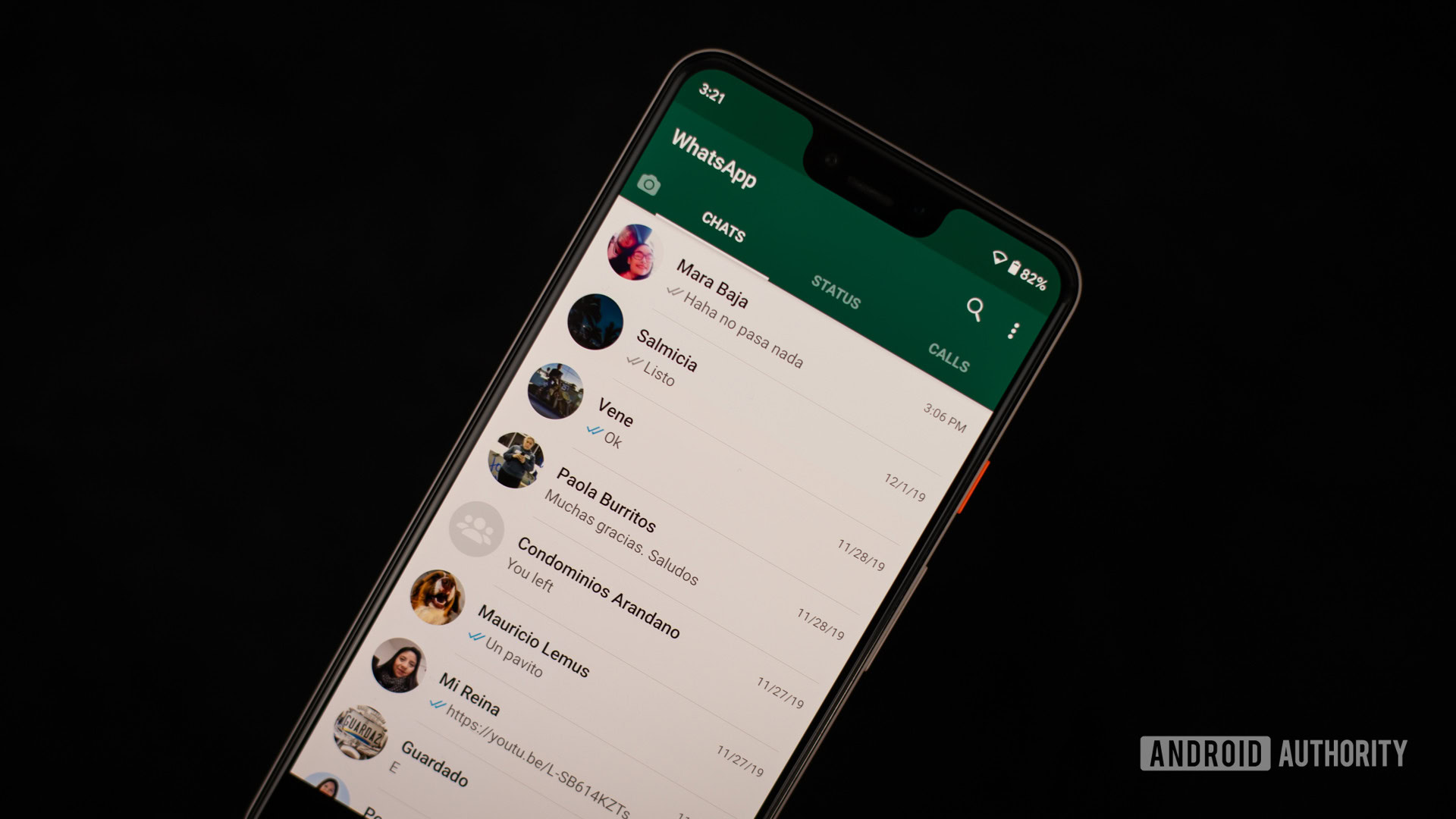
WhatsApp is a free messaging app for making audio and video calls, sending files, taking and sending pictures, and much more. WhatsApp is available as a smartphone app for Android and iPhone, a desktop version, and a limited web browser version.
To begin using WhatsApp, you must register your mobile device phone number. Your number is your identifying feature for people to find you on WhatsApp. However, if you subsequently change your phone number, it’s very easy to switch things over.
Once the person you want to speak to has your WhatsApp-registered number, they can add you and begin talking to you. However, if they don’t want to add you to their phone’s contacts app, there is a workaround to talk to you anyway without adding the number. They can even talk to you on WhatsApp if you don’t have a SIM card on your phone.
Who can use WhatsApp?

WhatsApp says you must be at least 13 years old to register for a WhatsApp account, and for some reason, you must be at least 16 years old in the European Union. Anyone under those ages can have their accounts disabled if WhatsApp finds out about you.
Besides that, anyone can use WhatsApp, provided they adhere to the terms of service and do not use the platform for spam or criminal activities. However, some countries, such as China, North Korea, and Iran, may block access- permanently or temporarily- to WhatsApp for their citizens. This, of course, can change anytime, depending on the political situation in any given country. But saying that, you may be able to access WhatsApp in these countries via a VPN app.
As well as individuals, small businesses can also use a WhatsApp Business version, and larger companies can apply for the WhatsApp Business API. WhatsApp Business is a slightly modified version to allow companies to keep in touch with their customers on the platform and publish a catalog of their goods and services.
Who owns WhatsApp?

Of course, this meant that they were soon on Mark Zuckerberg’s acquisition radar, and in 2014, Facebook bought WhatsApp for an eye-watering $19 billion. Despite Facebook’s initial promises of WhatsApp remaining an independent company, it was gradually brought more and more into the Facebook ecosystem, and Acton and Koum subsequently left the company.
Is WhatsApp free?

Yes, WhatsApp is free to use, regardless of the platform. You will only encounter a cost if you decide to use the WhatsApp Business API. Connecting the API to your preferred business communication platform will incur costs. Other than that, WhatsApp is free of charge. This has led to speculation that advertising will eventually appear on the platform to allow Facebook to start profiting from it.
Why is WhatsApp so popular?
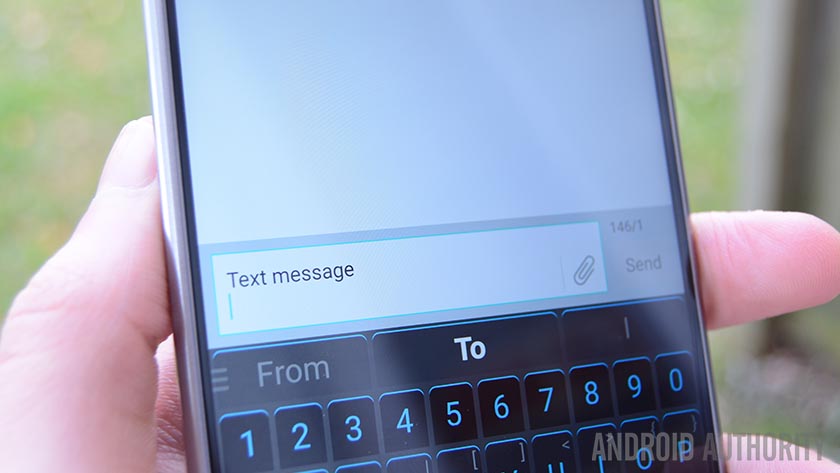
There are so many reasons why WhatsApp is popular, and if you asked users, they would likely tell you about their favorite features. But what made WhatsApp the breakthrough app when it first started was that it pretty much killed regular SMS. Obviously, we still have SMS today, but it’s a radically much better version than it used to be.
Phone carriers used to look upon SMS as their milk cow, and some charged exorbitant rates for a single SMS message. Message characters were counted, sending photos cost more, and monthly SMS messages were strictly capped. Phone carriers did it because they knew they could. They knew there were no serious competitors to upset the apple cart.
But then WhatsApp came along, and suddenly you could send uncapped messages and multimedia for free, regardless of the length of the message. That was when the phone carriers realized the good old days were over. Phone companies are now offering bundles of free SMS messages monthly with customer tariffs.
What are the pros and cons of WhatsApp?
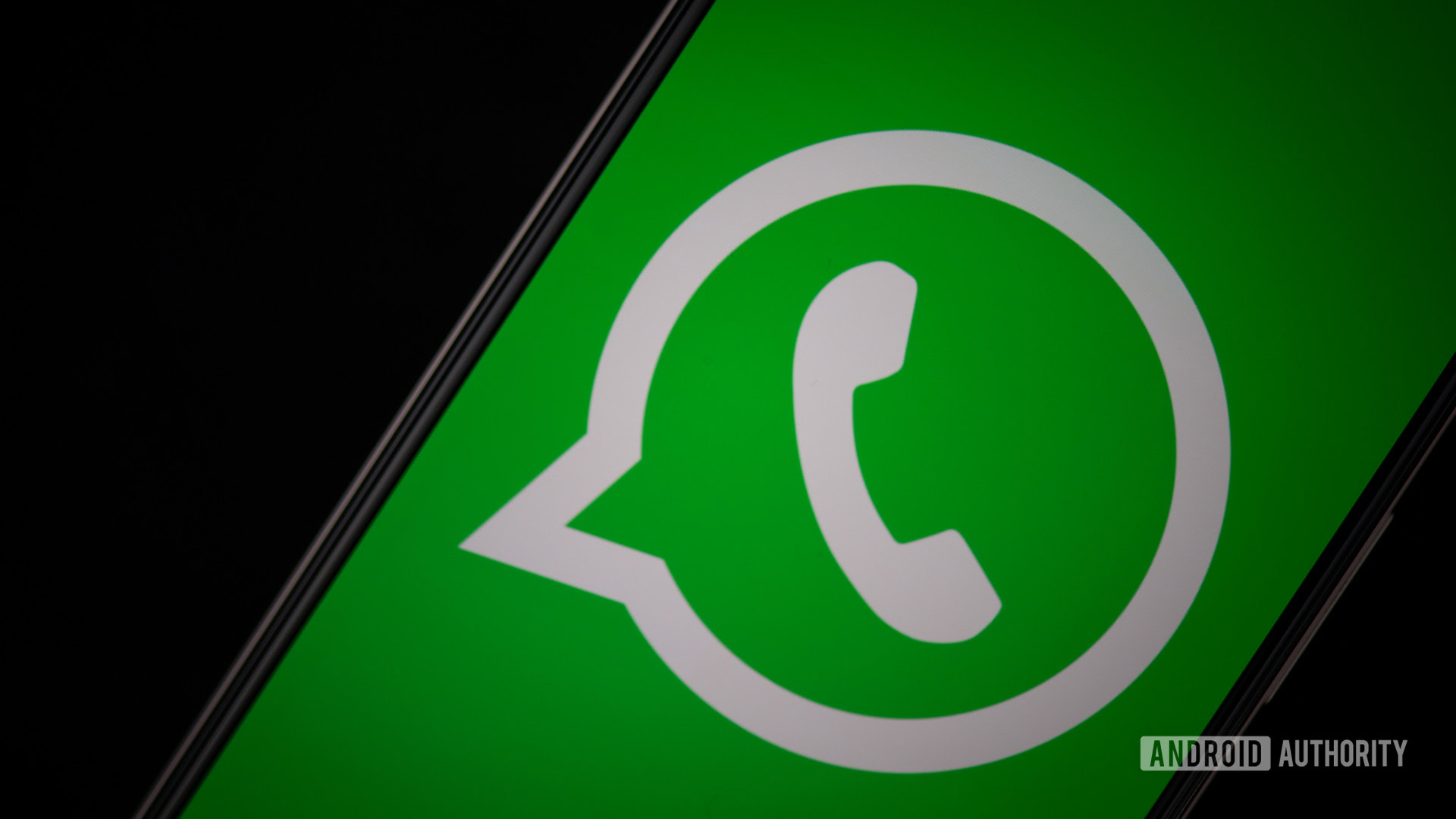
The pros and cons of WhatsApp are numerous, and we’ll be covering a lot of the features here that make WhatsApp popular. But the main pro is that you are identified on WhatsApp by your phone number. This means that if you are in someone’s phone contact book, you are also in their WhatsApp contact list (assuming you all use WhatsApp). There are no usernames to remember, and no profile URLs to click. If you know the phone number, you know how to get in touch.
The main downside is that it is a Facebook-owned company, and despite the platform being encrypted, there are still privacy concerns (see the next section for this.)
Using the same WhatsApp account on more than one device
One of the biggest disadvantages has been that you couldn’t use the same WhatsApp phone number on two or more phones — or even on a tablet. There is a not-so-elegant workaround, but now it seems that WhatsApp is finally doing something about it. As of December 2022, though, it’s only for Android, and it’s only in the beta stage.
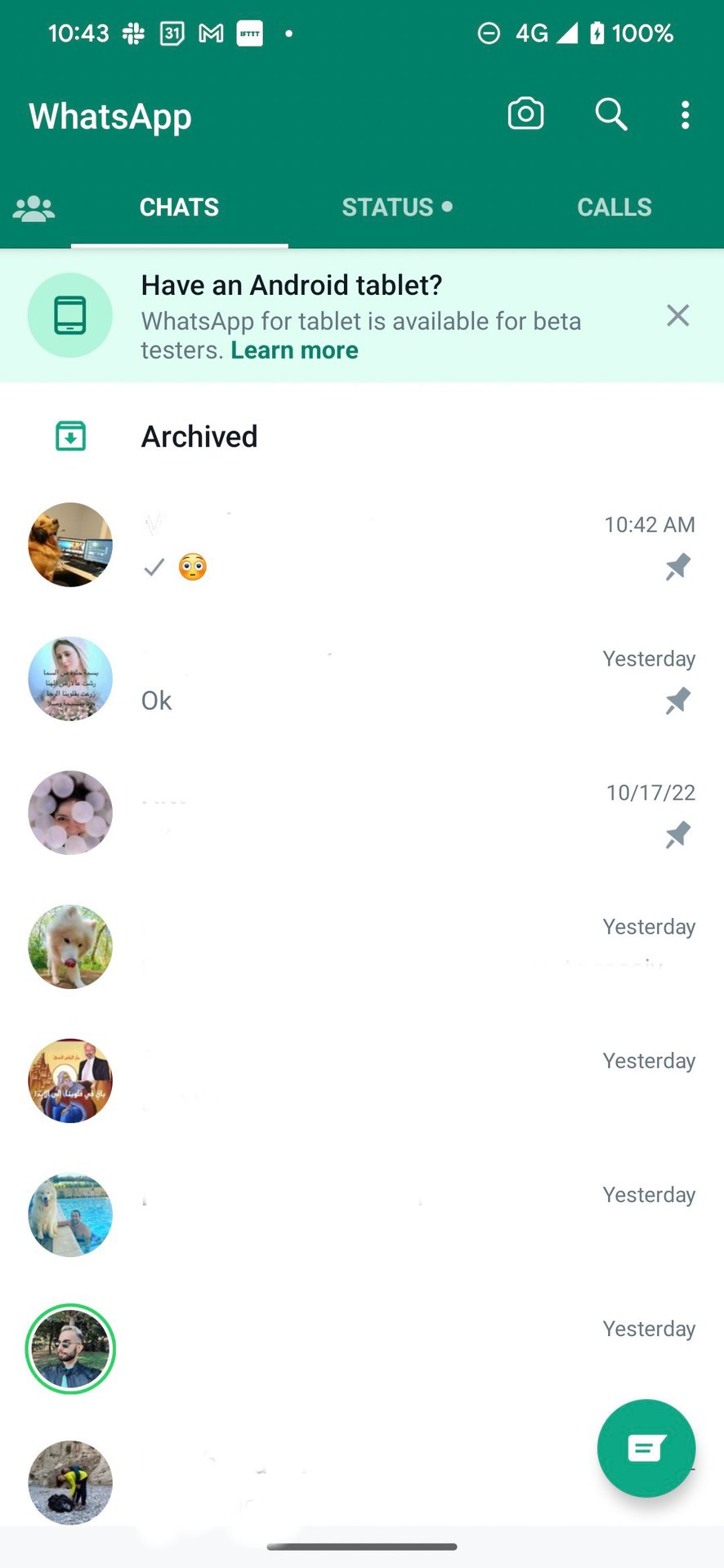
Android users who are signed up for the beta program can also now use a test version of WhatsApp for Android tablets. If you are not in the beta program, you can get the APK file from a third-party source. There’s no word yet on when the tablet version will be rolled out for the iPad.
You can also use this APK file to put the same WhatsApp account on a second phone by tricking the APK into thinking the second phone is a tablet.
Is WhatsApp safe and private?

In these privacy-focused times, the main concern turns naturally to whether or not WhatsApp can be trusted with our chats and media attachments. Our own Calvin Wankhede has written a great guide on the end-to-end encryption installed on WhatsApp.
But despite this, lingering doubts remain about how secure the platform is since Facebook owns it. The Electronic Frontier Foundation has long warned about Facebook’s attempts to access WhatsApp user data. Plus, remember it can be argued that you are undermining the encryption by automating WhatsApp backups to a third-party cloud service.
The main thing to remember at the end of the day is to exercise caution. Don’t reveal sensitive information and media on WhatsApp. If you use it for general chatting, you’ll be fine.
What are WhatsApp’s main features?
Messaging
The main feature of WhatsApp is obviously its messaging function. There are two features that may cause users concern on the privacy front. But both features can be switched off if you feel you don’t need them.

The first is the checkmarks that get added to each message. One tick means the message has been sent, and two ticks mean the message has arrived with the recipient. Both of these are obviously harmless. But when the recipient reads the message, those two ticks turn blue. If you don’t want anyone to know you’re reading those messages, then those blue ticks are a dead giveaway.
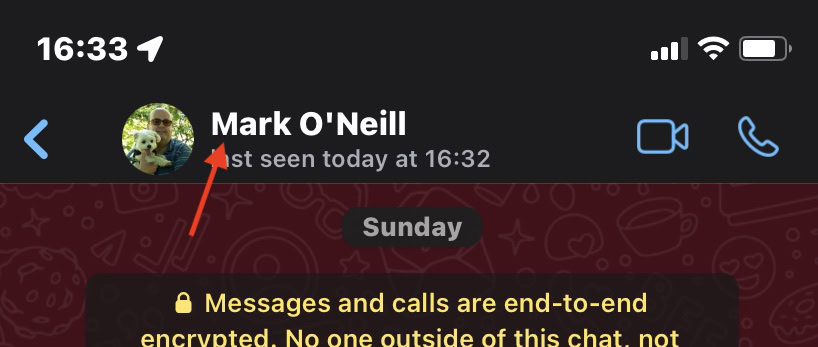
The second is under the username, where your contacts can see the last time you logged onto WhatsApp. Again, this may be something you don’t want anyone to know. But as we said, you can easily switch this off in the settings.
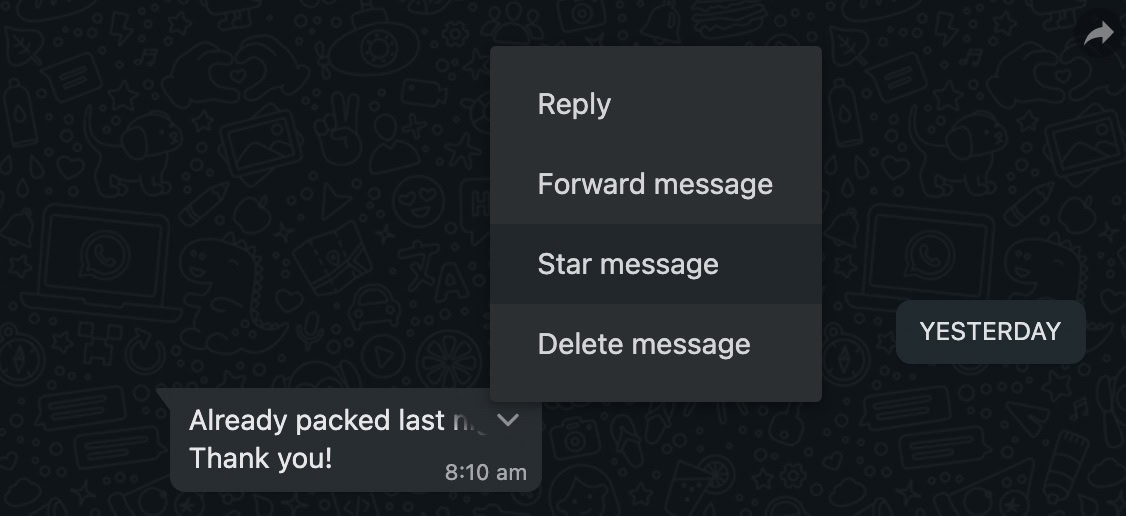
There is also a bookmarking system (of sorts), where you can save important messages for easy access later. Simply select the message and “star” it. You can then go to a separate area of WhatsApp to view your starred messages.
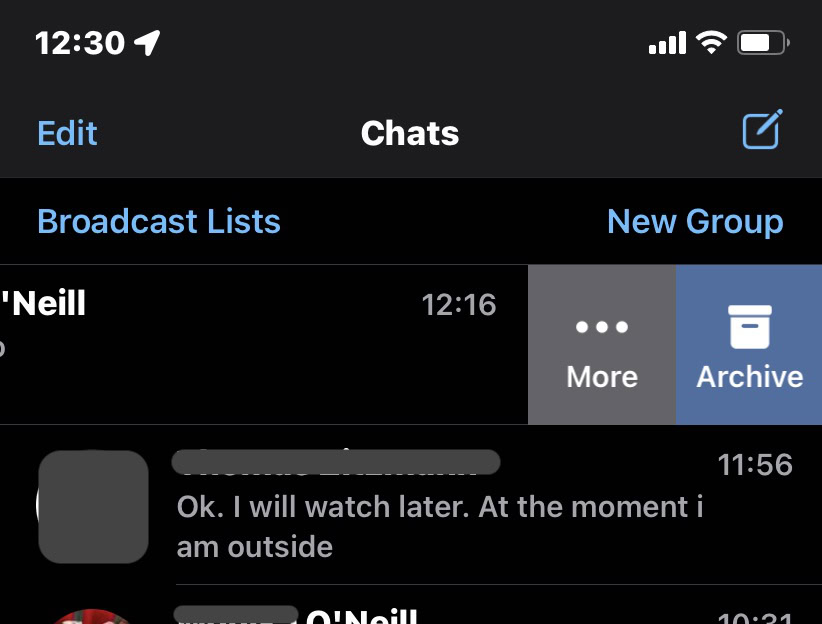
Finally, you can clean up your messaging inbox by archiving old and unneeded messages. If you need any of them again in the future, they can be brought out of the archive and back into the inbox.
Group chats
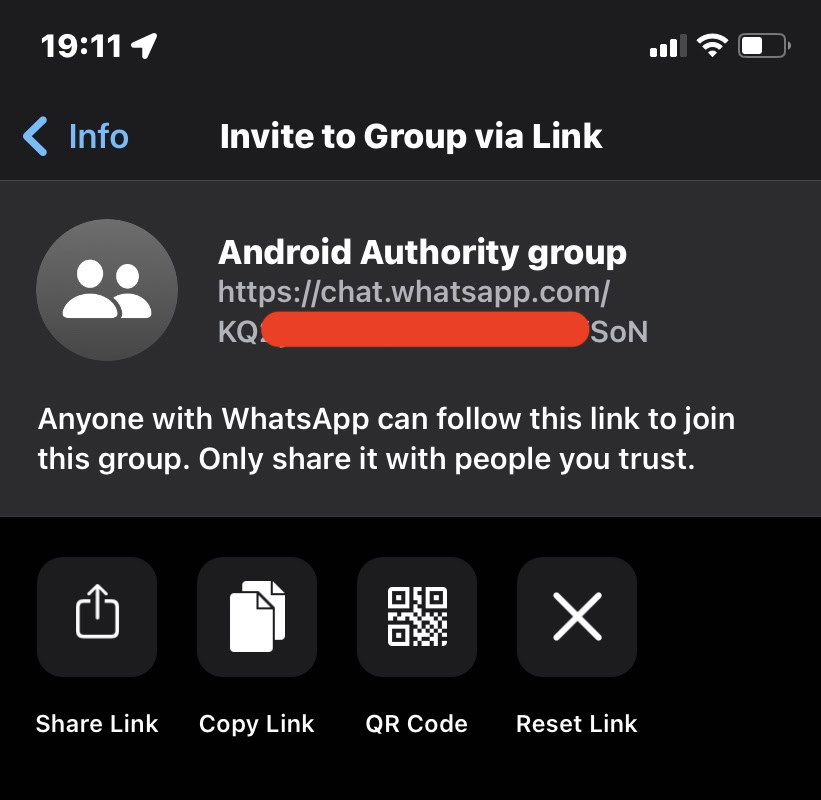
WhatsApp isn’t only for one-to-one chats. You can also bring in up to 256 people to chat in one place as well. Setting up a WhatsApp group is as simple as choosing participants from your contact list, selecting a group name, and off you go.
Opening and closing them up is so easy and fast that you can effortlessly start one to organize spontaneous special events. Or, if you want to say start up a community, you can publicize a joining URL that people can click to enter your group.
Video calls
The third tier of the WhatsApp platform is video calls. If both you and the person you want to call are on WhatsApp, you can make free unlimited video calls to one another, regardless of country. You can even make group video calls. Although, if you’re on a strictly capped internet data plan, you may want to toggle the WhatsApp setting that restricts how much data these calls use up.
What else can you do with WhatsApp?
You’d be mistaken if you thought that calling and texting are the only things WhatsApp has to offer. There are other useful features if you jump on the WhatsApp bandwagon.
Share images, videos & documents
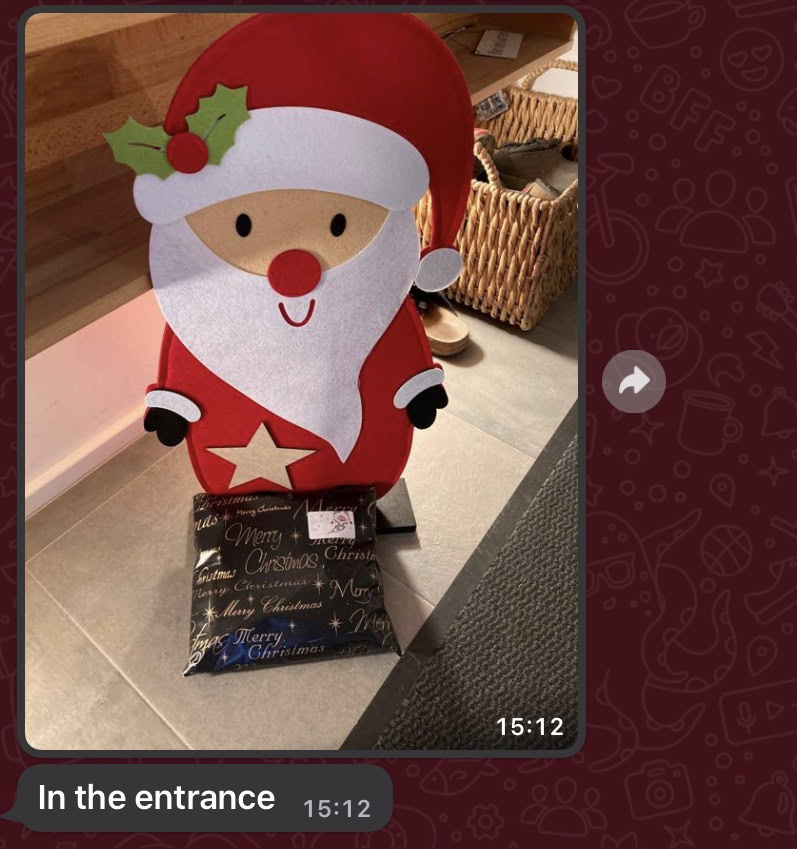
As we start to take more photos and video clips with our phones, being able to instantly transfer them to someone via WhatsApp becomes invaluable. Obviously, other platforms such as Skype were doing this first — WhatsApp is hardly the trailblazer in this area. But as we move more towards talking to everyone we know on WhatsApp, being able to send and receive files from everyone on the same platform — and then, if necessary, forward those files on to other WhatsApp contacts — becomes ever more convenient.
If space is tight on your phone, you may want to specify whether or not WhatsApp should automatically download media content to your phone.
Disappearing Messages
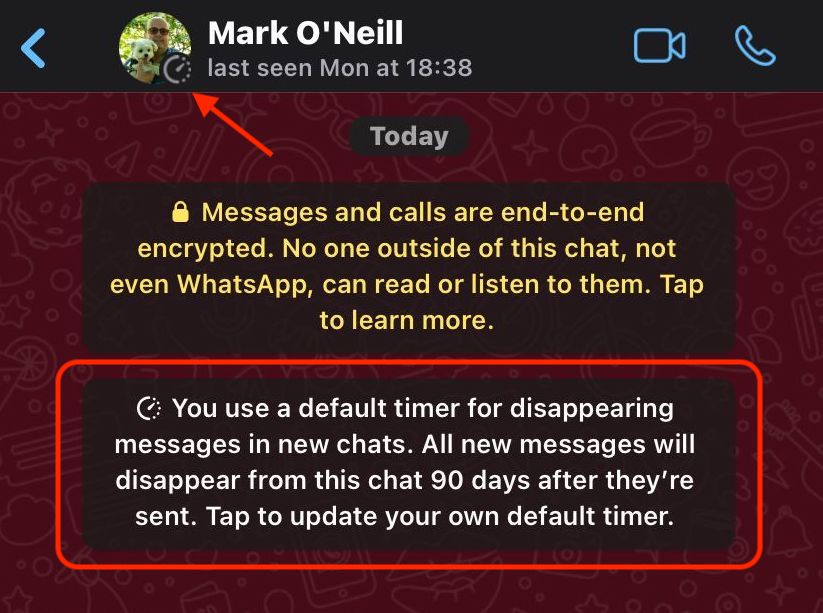
Some people might view disappearing messages as the answer to their privacy concerns. Send a message, then watch it self-destruct in five seconds once it’s been read. But as we explained in our article on disappearing messages, it isn’t a foolproof method of wiping messages. You should instead use it as a kind of auto-wiping feature to keep your inbox neat and tidy.
Voice messages
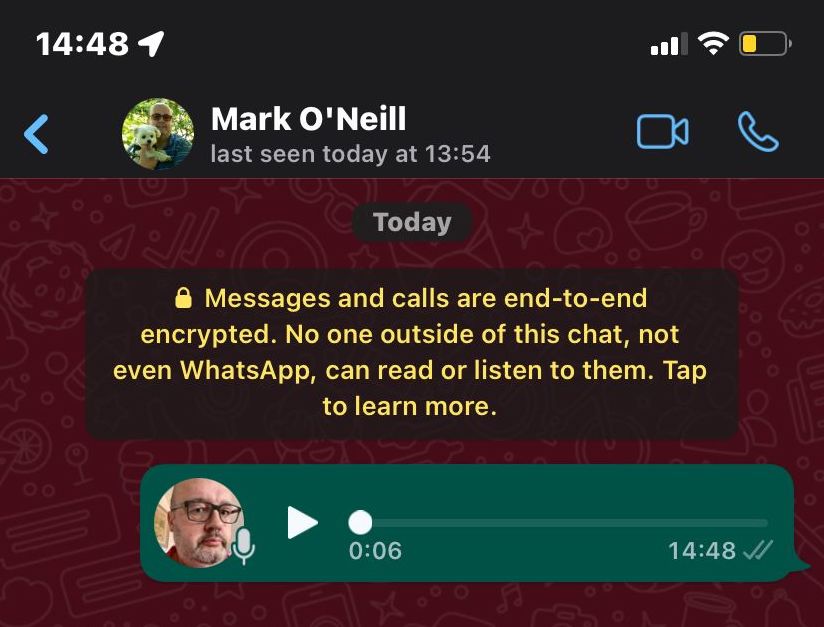
Voice messages are another useful feature, especially if you’re rushing about and you don’t have time to stop and type messages. Just start the recorder and let your voice do all the work. WhatsApp only holds onto the recordings until the recipient comes on to WhatsApp and listens to them — or 30 days — whichever comes first.
You can also download WhatsApp voice messages as OGG audio files to your device or desktop computer.
Share location
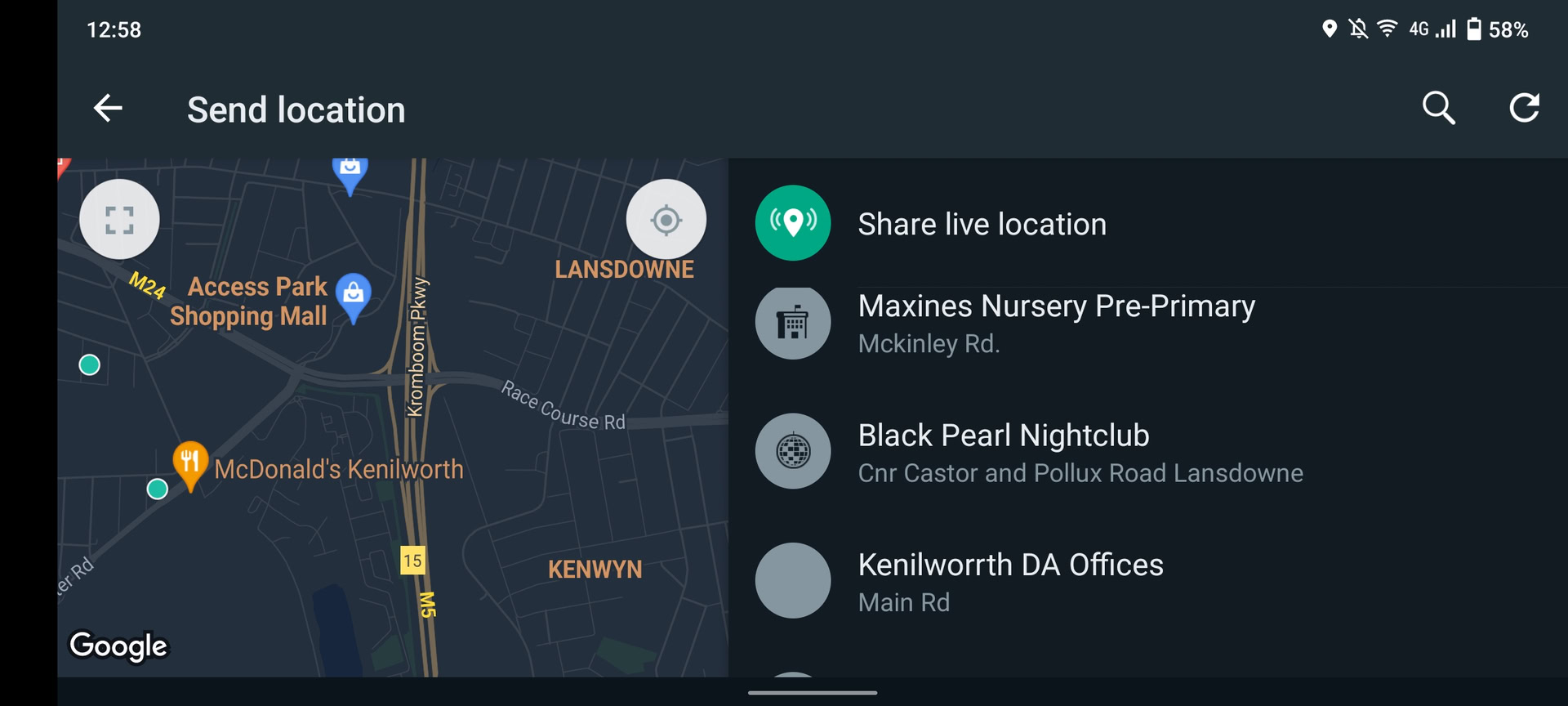
Even though many WhatsApp users may be focused on their privacy, there are still many extremely useful scenarios where sharing your location can be a lifesaver. You could be lost and need directions from a friend who lives locally. Or perhaps you want to track the current live location of your child? With a couple of taps in WhatsApp, your contact gets an updated map of which direction you’re heading in.
Create poll
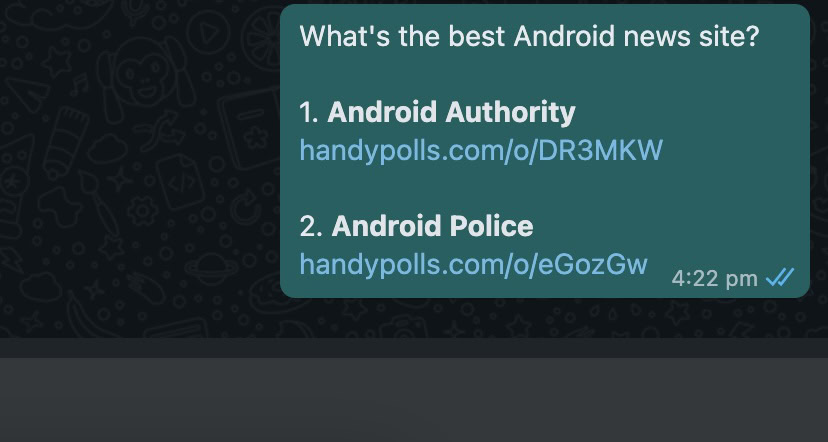
Finally, who doesn’t love being asked their opinion? If you want to question the hive mind and get a snapshot of which way the prevailing mood is blowing, then why not create a WhatsApp poll?
WhatsApp doesn’t provide this officially, but third-party apps and platforms do. Eventually, WhatsApp will come up with something themselves.
How to backup and transfer WhatsApp
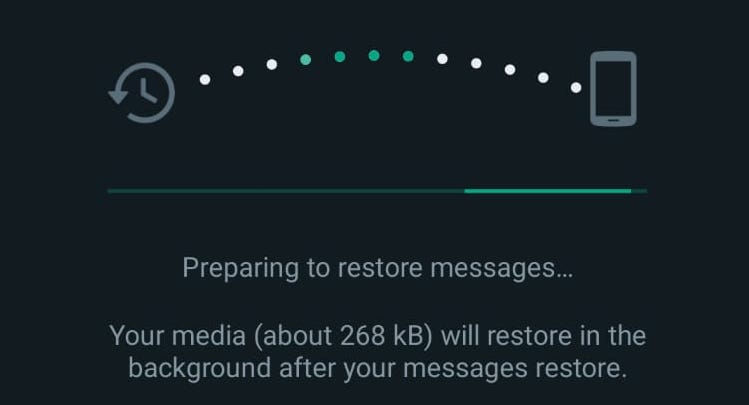
In this day and age, switching phones every year or two has become a perfectly normal practice. So if you’re a heavy WhatsApp user, you must be assured that you can transfer your chat and media history seamlessly between devices. Especially if you plan to switch phone platforms altogether and go from an iPhone to an Android.
The good news is that WhatsApp makes this process extremely easy. It’s essentially the same process as recovering your WhatsApp messages if you happened to delete any important ones. Just back up your WhatsApp history first, then follow the on-screen prompts.
Can you customize WhatsApp?
There are not a lot of customization options for WhatsApp. The only three are the background wallpaper, changing your status, and adding a profile picture.
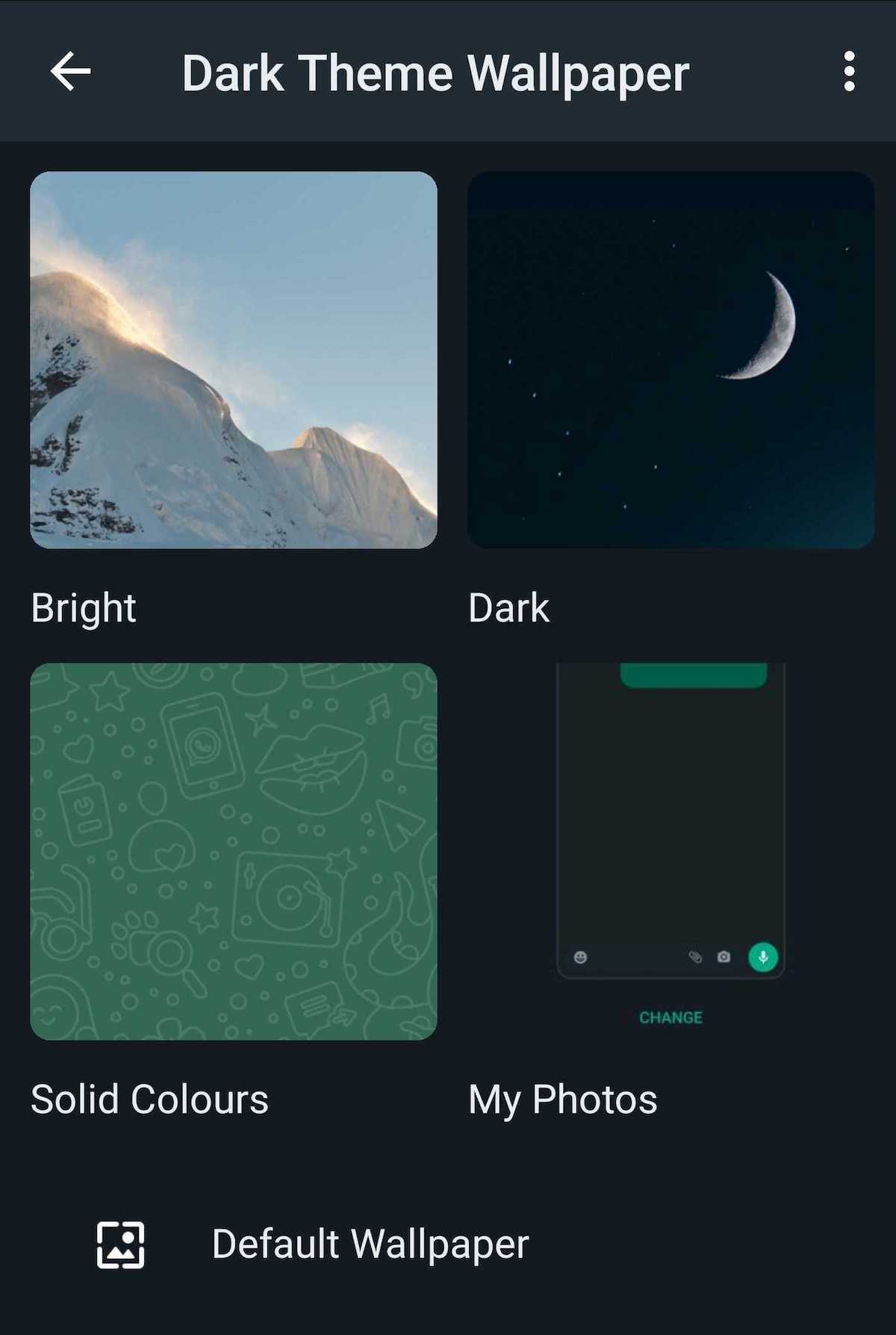
By changing the wallpaper, you can either choose one of the preinstalled wallpapers in WhatsApp or upload an image from your Photos app.
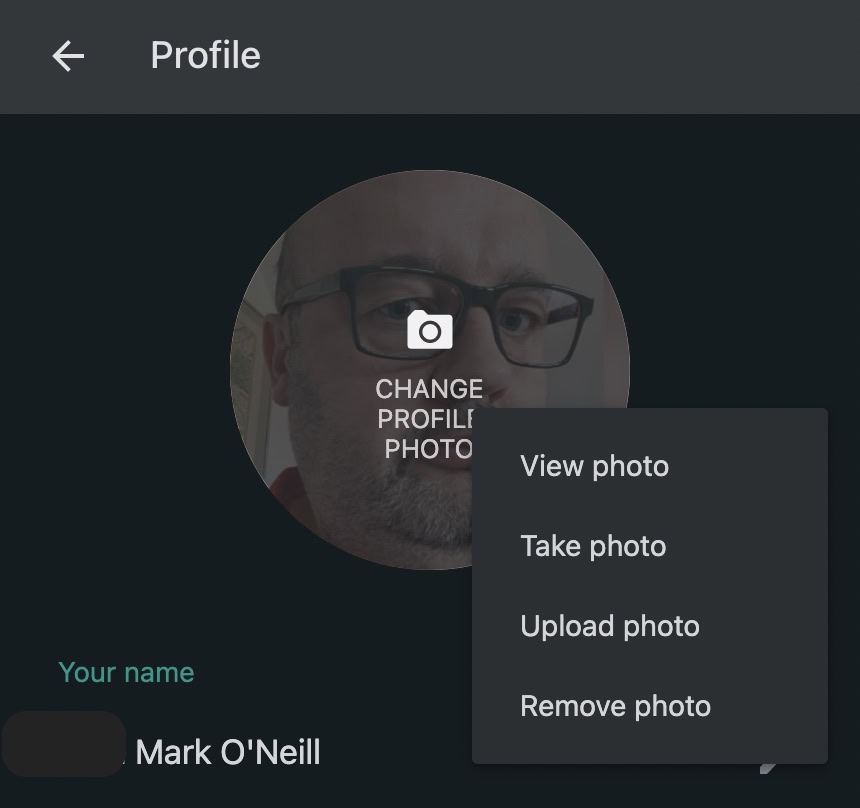
Adding a profile image is the easiest way to personalize your account and give your contacts an easy way to pick you out of a crowded contact list.
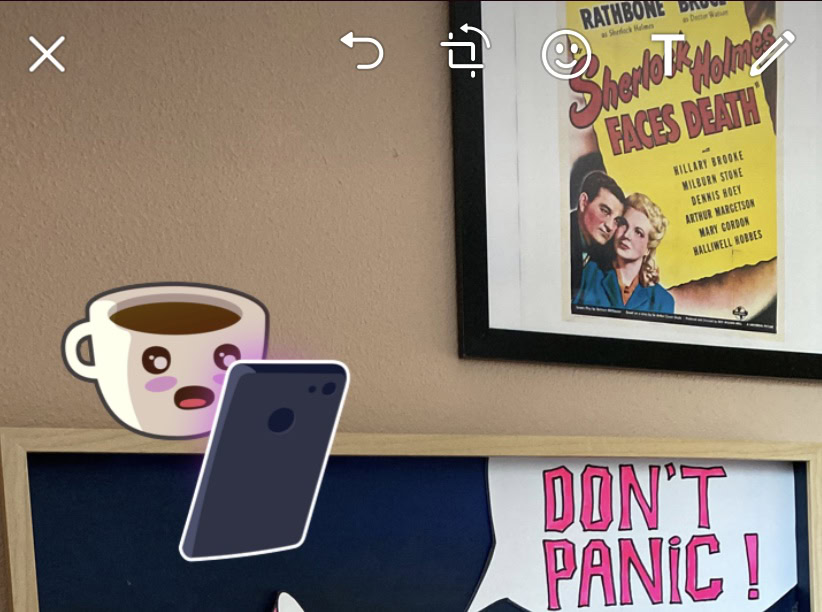
Creating a status is very similar to Instagram Stories, although not as advanced. You can upload an image or video clip, add text, and have it next to your username for 24 hours.
Other similar messaging apps to WhatsApp
WhatsApp is obviously not the only messaging app on the block. If, for any reason, WhatsApp doesn’t appeal to you, consider using one of the following.
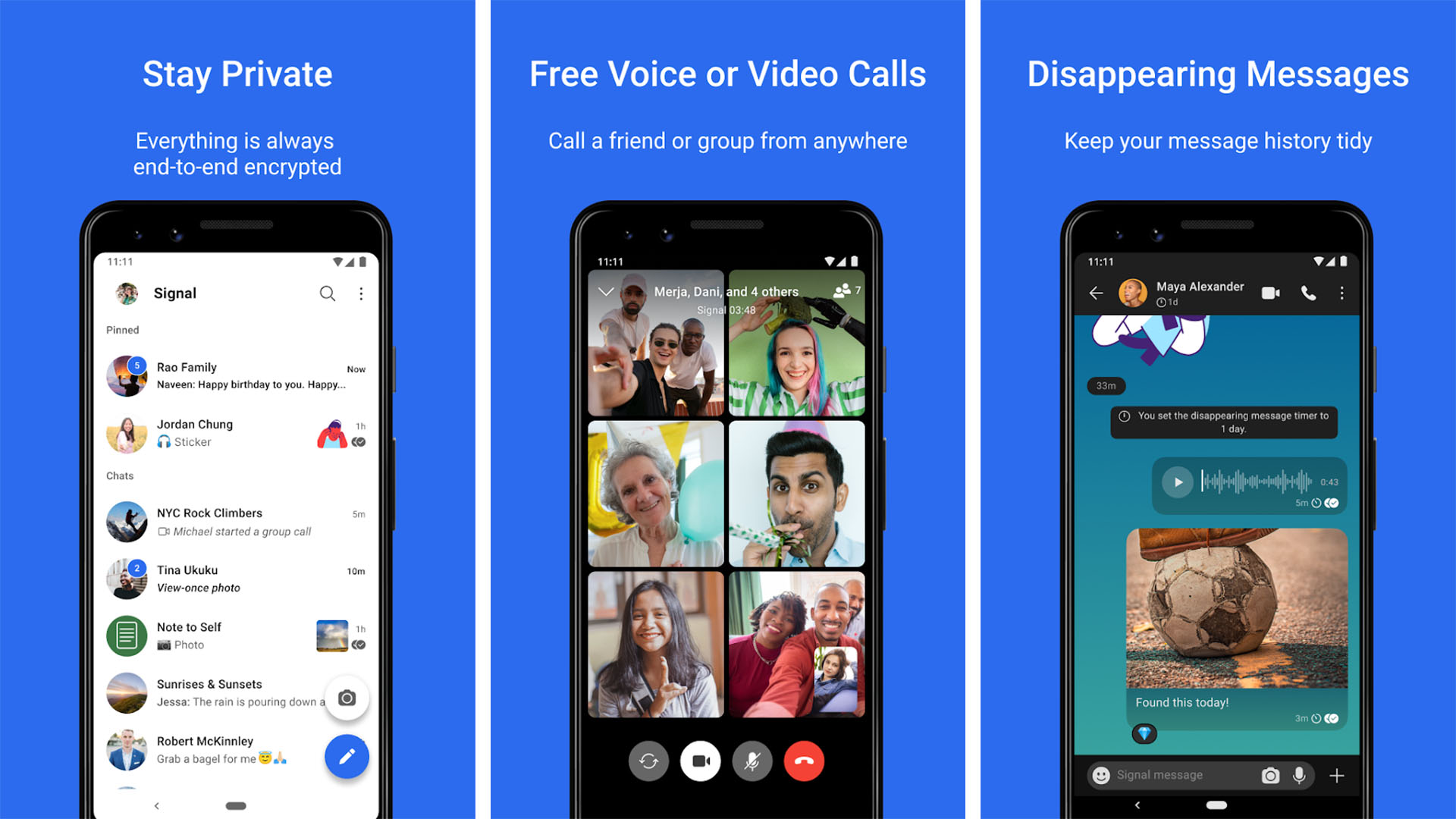
The free Signal app is highly regarded as the best secure messaging app currently in existence, having been endorsed by the likes of Edward Snowden. It’s much more secure than WhatsApp because Signal holds no data on its users, so they have nothing to give to law enforcement if they come knocking with a warrant.
Another alternative is Telegram, although concerns have been raised in the past about how secure it is. User data such as IP addresses are logged, which might concern some if they live in an authoritarian country and don’t wish to be tracked.
To further help you make up your mind, we’ve compared WhatsApp, Signal, and Telegram to weigh their pros and cons. We’ve also listed the best messenger apps for your Android phone.
Read also: 21 essential WhatsApp tips and tricks you should know
Other frequently asked WhatsApp questions
Although there is no actual WhatsApp app for the Apple Watch, you can still use the two together. Not all WhatsApp features work, though.
There is no official WhatsApp feature to do this, but there are some third-party apps that allow you to do it.
WhatsApp was trialing a payment system called Novi for a limited number of its US users. Using a new cryptocurrency called Pax Dollars, they were pegged to the actual value of real US dollars. However, in July 2022, Facebook announced they were shutting down the system.
